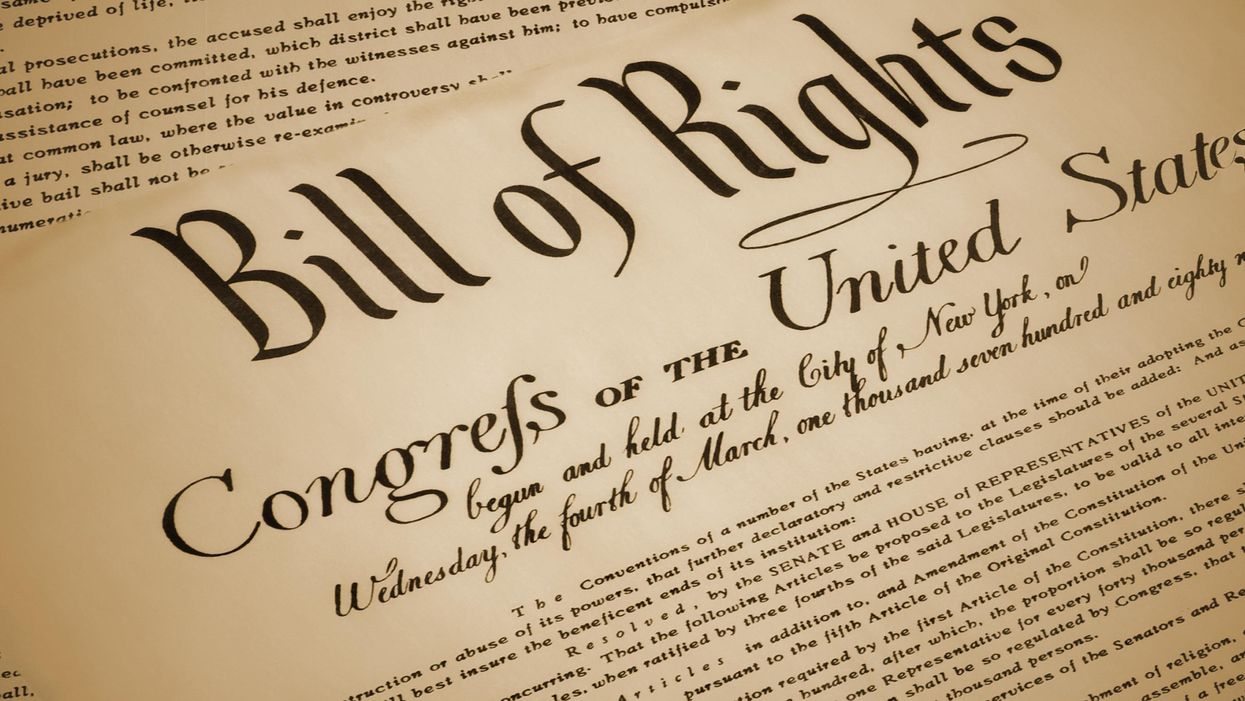In September 1787, delegates to the Constitutional Convention signed the document that would become the framework for the new U.S. government. However, that was just the beginning of a process that would not be complete for another three years.
On Dec. 15, 1791, Virginia became the 11th state to ratify the first 10 amendments to the Constitution — what became known as the Bill of Rights — and completed a compromise begun years earlier.
Today we celebrate the 230 anniversary of that vote.
The story of the Bill of Rights starts with the origins of political parties in the United States. Two factions had been sparring over the draft of the Constitution, the Federalists and the Anti-Federalists.
The Federalists, led by Alexander Hamilton and with support from James Madison, campaigned for approval of the Constitution as it was written. But the Anti-Federalists, including Patrick Henry and George Mason, wanted the document to include specific rights to protect the people from a powerful central government. The Federalists countered that such a “bill of rights” was unnecessary because “the government can only exert the powers specified by the Constitution,” according to Madison.
When ratification of the Constitution stalled in the states, a deal known as the “Massachusetts compromise” was reached. In exchange for the state’s vote to adopt the Constitution, the new government would introduce a Bill of Rights. And so when the First Congress convened in 1788, Madison himself introduced a slate of constitutional amendments, 10 of which were eventually ratified by the states.
President Biden established a Bill or Rights Day in a proclamation issued Tuesday.
“On December 15, 1791, three-fourths of the existing State legislatures ratified the first 10 Amendments of the Constitution — the Bill of Rights. These Amendments protect some of the most indispensable rights and liberties that define us as AmericansT,” he said. “Though we have often struggled to live up to the promises they contain, 230 years after the ratification of the Bill of Rights, respect for human rights and fundamental freedoms remains at the center of our democracy.”
The first 10 amendments
Amendment I
Congress shall make no law respecting an establishment of religion, or prohibiting the free exercise thereof; or abridging the freedom of speech, or of the press; or the right of the people peaceably to assemble, and to petition the Government for a redress of grievances.
Amendment II
A well regulated Militia, being necessary to the security of a free State, the right of the people to keep and bear Arms, shall not be infringed.
Amendment III
No Soldier shall, in time of peace be quartered in any house, without the consent of the Owner, nor in time of war, but in a manner to be prescribed by law.
Amendment IV
The right of the people to be secure in their persons, houses, papers, and effects, against unreasonable searches and seizures, shall not be violated, and no Warrants shall issue, but upon probable cause, supported by Oath or affirmation, and particularly describing the place to be searched, and the persons or things to be seized.
Amendment V
No person shall be held to answer for a capital, or otherwise infamous crime, unless on a presentment or indictment of a Grand Jury, except in cases arising in the land or naval forces, or in the Militia, when in actual service in time of War or public danger; nor shall any person be subject for the same offence to be twice put in jeopardy of life or limb; nor shall be compelled in any criminal case to be a witness against himself, nor be deprived of life, liberty, or property, without due process of law; nor shall private property be taken for public use, without just compensation.
Amendment VI
In all criminal prosecutions, the accused shall enjoy the right to a speedy and public trial, by an impartial jury of the State and district wherein the crime shall have been committed, which district shall have been previously ascertained by law, and to be informed of the nature and cause of the accusation; to be confronted with the witnesses against him; to have compulsory process for obtaining witnesses in his favor, and to have the Assistance of Counsel for his defence.
Amendment VII
In Suits at common law, where the value in controversy shall exceed twenty dollars, the right of trial by jury shall be preserved, and no fact tried by a jury, shall be otherwise re-examined in any Court of the United States, than according to the rules of the common law.
Amendment VIII
Excessive bail shall not be required, nor excessive fines imposed, nor cruel and unusual punishments inflicted.
Amendment IX
The enumeration in the Constitution, of certain rights, shall not be construed to deny or disparage others retained by the people.
Amendment X
The powers not delegated to the United States by the Constitution, nor prohibited by it to the States, are reserved to the States respectively, or to the people.




















Marco Rubio is the only adult left in the room